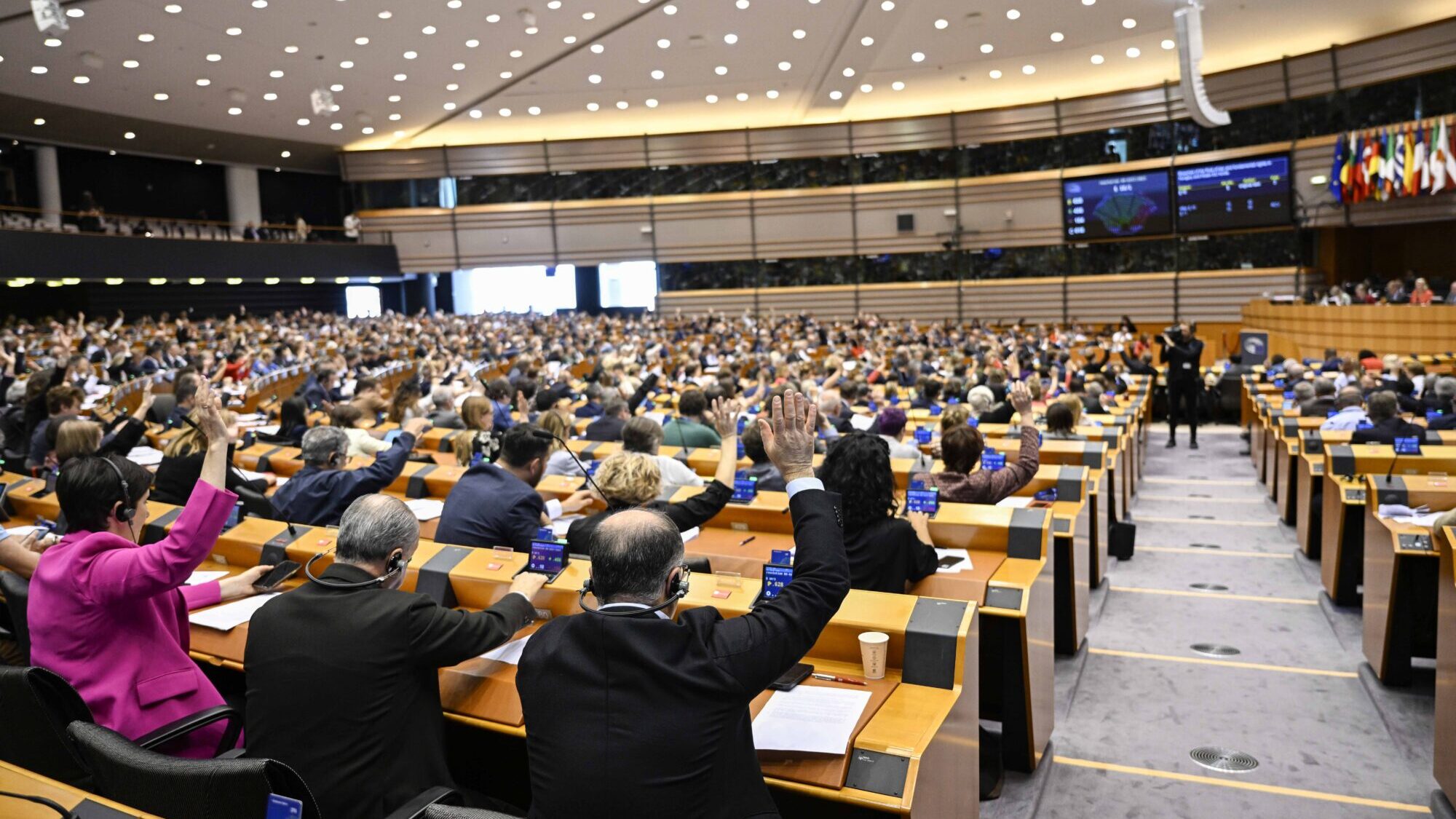
Photo: Laurie DIEFFEMBACQ © European Union 2023
The European Parliament’s Constitutional Affairs Committee adopted a draft report on Monday, June 12th, to increase the number of parliamentarians by eleven while also saving 28 extra seats for a proposed transnational list, ahead of the 2024 EU elections, Euractiv reported. However, the idea of transnational representation—additional MEPs to be selected by a separate vote directly from a Union-wide constituency—is highly unlikely to be approved by the Council.
The draft report is scheduled to be adopted by the plenary on Thursday, after which it would also need Council approval. If both legs were accepted, it would increase the number of MEPs from 705 to 744.
The decision to create eleven extra seats was following a ‘minimalist approach,’ meaning that the European Parliament (EP) would be increased only by the smallest required number of parliamentarians to re-apply the principle of degressive proportionality as specified by the treaty.
According to the rationale behind the report, due to demographic changes within Europe, the degressive principle was no longer correctly applied to EP representation, and at least 716 seats were needed to accurately reflect the new reality.
Among those 11 seats, Spain and the Netherlands would get two each, while Austria, Denmark, Finland, Slovakia, Ireland, Slovenia, and Latvia would be given one extra seat each.
While this correction is a purely practical decision and can hardly be over-politicized, the other measure in the report is anything but, and is expected to be voted down by the majority of national governments.
The idea of a portion of MEPs elected by a transnational constituency to directly represent all of the EU was first proposed in May last year but has been stuck in the Council ever since, with little to no chance of moving forward anytime soon. By giving EU citizens two separate votes–one in their national constituency and another at the EU-level would mean that people could also vote for parties in any country, regardless of where they live.
Despite such resistance, the draft report proposed reserving 28 seats for MEPs elected from transnational lists in the next election, in case some miracle happens before June 2024 that disposes the Council to change its mind.
For its part, the Council’s Swedish presidency is on board with the proposal and even sent a form on the EP’s electoral law reforms to all EU ambassadors to see if they could be persuaded. The next time EU ministers will discuss the proposal will be at the general affairs council on June 21st.
Call it wishful thinking, but the rapporteurs on the file actually think that the Council should give a green light to the initiative, even though it’s clearly contrary to most EU countries’ interests.
“It would be unjustifiable … that the Council ignores one of the only proposals where the Parliament has got the right of legislative initiative, and which doesn’t concern whatever policy, but concerns the composition and the way to elect the Members of the European Parliament,” the liberal Renew party’s co-rapporteur Sandro Gozi said.
